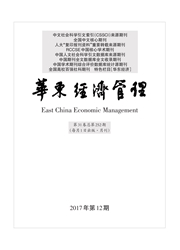

 中文摘要:
中文摘要:
尽管已有研究开始探讨员工犬儒主义的影响因素,但缺乏在中国文化情境下从领导风格角度探究如何抑制员工犬儒主义。文章基于情感事件理论和自我决定理论,通过对580名企业员工的问卷调查,探讨了伦理型领导通过满足员工基本心理需要对员工犬儒主义的影响,同时分析了员工集体主义倾向在这一过程中的调节作用。实证结果表明:伦理型领导负向影响员工犬儒主义,员工的自主需要、归属需要在这一负向关系中起中介作用,集体主义倾向强化了员工基本心理需要与员工犬儒主义之间的负向关系。文章揭示了伦理型领导对员工犬儒主义的作用机制和边界条件,丰富了伦理型领导的本土有效性研究,同时为企业管理员工负向情绪提供了实践指导。
 英文摘要:
英文摘要:
Although the antecedents of employee cynicism are well discussed in the literature, we know little about how the contextual factors in the work environment in Chinese cultural context, such as leadership style, shape employee cynicism. Drawing from affective events theory and self-determination theory, with 580 employees as the samples, this paper examined the influence of ethical leadership on cynicism via basic psychological needs. The moderating effect of collectivistic orientation was investigated as well. The empirical results indicated a negative correlation between ethical leadership and cynicism, which was mediated by autonomy and relatedness needs; and the effects of basic psychological needs on employee cynicism were moderated by collectivistic orientation. This study revealed the influence of ethical leadership on employee cynicism, and its underlying moderating and mediating mechanisms. The results not only enrich the research of ethical leadership in Chinese cultural context, but also provide a practical guidance for enterprises to manage employees' negative emotions.
 同期刊论文项目
同期刊论文项目
 同项目期刊论文
同项目期刊论文
 期刊信息
期刊信息
